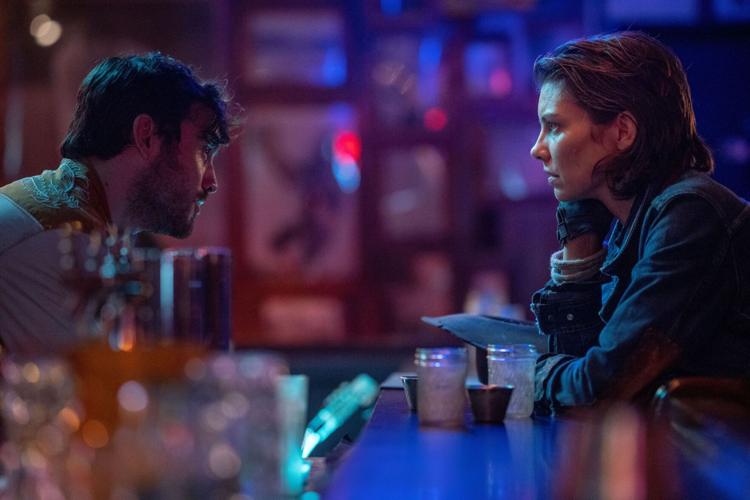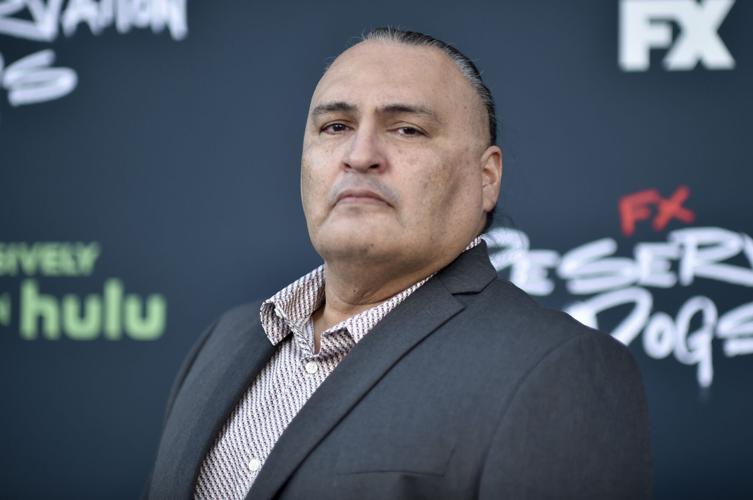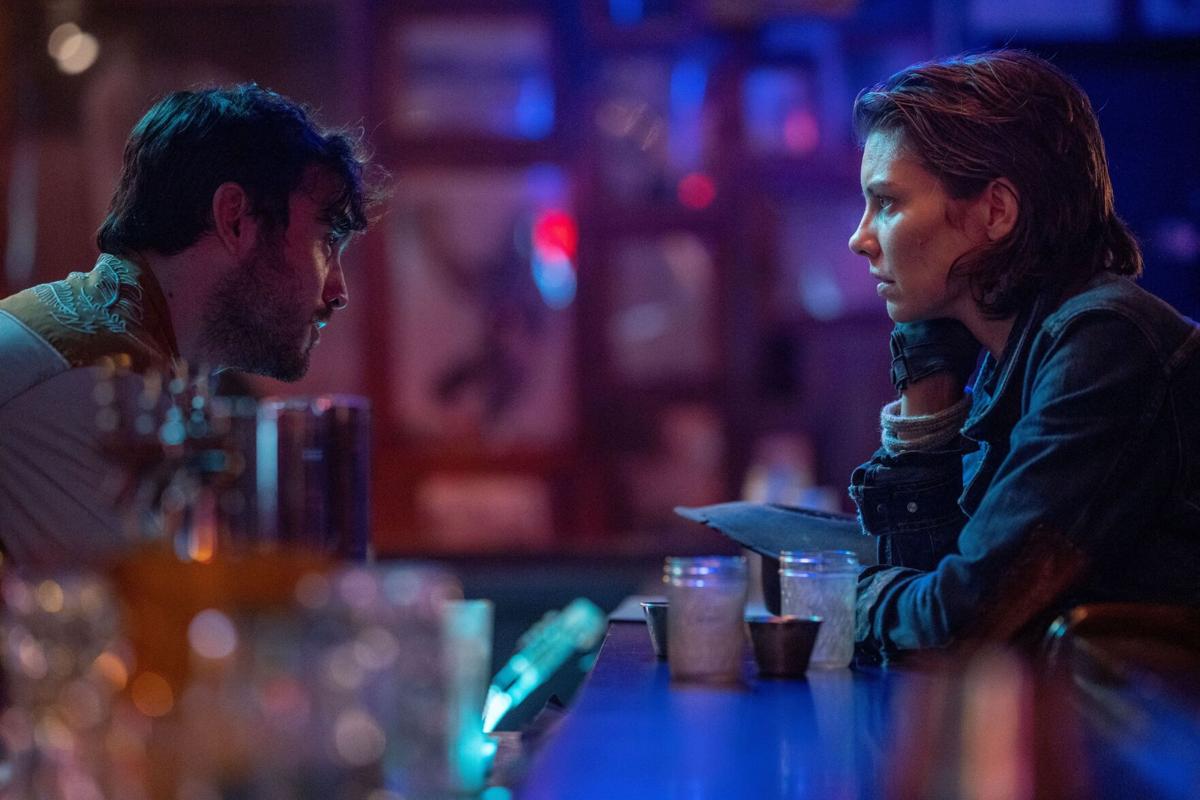Jon Proudstar had a couple of auditions recently and was in early conversations about a TV series, but the Tucson native’s acting career came to a screeching halt when Hollywood actors went on strike July 12.
Sean Berube also had a handful of auditions lined up, a trio of indie film projects in the works, and had wrapped up work on a pilot shot in Tucson that producers were shopping to networks.
Now the retired Tucson police officer who has been pursuing an acting career in Los Angeles since late 2020 is waiting to see what happens as the Screen Actors Guild-American Federation of Television and Radio Artists (SAG-AFTRA), the union representing actors, attempts to negotiate with the Alliance of Motion Picture and Television Producers, the trade association that represents the big movie studios.
“One percent of the actors out there … are big stars (making big paychecks), but the rest of us are making $26,000 or less per year, and that doesn’t even put you in the threshold to get the health care that SAG offers,” said Berube.
SAG-AFTRA offers health care coverage when actors work 100 days or make $25,950 in a year.
Former Tucson TV anchor Sally Shamrell, who joined SAG when she moved to Los Angeles 15 years ago to pursue acting, still hasn’t heard if she will land an American Airlines commercial that was supposed to be filmed in Phoenix.

Sally Shamrell
“I was like, wow, my first SAG audition since moving back to Tucson,” she recalled. “Now I don’t know what’s happening.”
Southern Arizona’s nearly 200 SAG-AFTRA member actors joined 160,000 nationwide in the July 12 strike against the major studios, including Warner Bros., Disney and Netflix. The union wants the big studios to increase base compensation and pay actors for streaming TV shows and movies in a way similar to the royalties paid when a show is sold into syndication. SAG-AFTRA says streaming services such as Hulu, Max and Netflix keep their metrics secret, which makes it impossible to determine how much actors are owed. The union wants a third party to analyze those numbers to determine compensation rates, according to SAG-AFTRA.
“Unless you are a series regular and you’ve managed to negotiate above the minimum union rates, it’s really quite challenging to make a living” acting, said New York-based actor and Tucson native Charlie Solis, who got his big break in this year’s AMC series “The Walking Dead: Dead City.” “I think that’s really the big issue, is trying to maintain our chunk of the puzzle as the industry is moving into the streaming model.”
“The executives don’t want to dip into their subscription revenue to pay the actors,” said Proudstar, who had a recurring role on the FX hit series “Reservation Dogs.” The critically-acclaimed series ran three seasons from 2021-23.
Proudstar, who still lives in Tucson, has done at least 50 productions, from commercials to indie films and TV, in his 30-plus-year career. But he still maintains a side job to make ends meet.

Jon Proudstar
“I’ve had hundreds of jobs,” he said, recounting how he would take time off to do acting gigs, and more times than not, the acting interfered with his day job and he would find himself unemployed.
These days he’s a shuttle driver for a company he said has accommodated his acting career.
Solis, a Sahauro High graduate whose career has included a handful of TV commercials, independent films and appearances on “Law & Order: Special Victims Unit” and “Conan,” was pursuing a big TV project that was put on hold because of the strike. He is making ends meet by coaching young actors with their audition tapes, and he said he is considering pursuing independent film projects.
SAG-AFTRA has lifted the restrictions on its members doing non-union projects while the strike talks continue.
“At least right now, there is a hope that there will be a bigger push and more money invested in indie projects,” Solis said.
In addition to the compensation issue, SAG-AFTRA also wants assurances from the studios that they will not use AI to sidestep paying actors. Studios, according to the actors, have hinted that they want to pay actors to film their likeness and then retain the use without the promise of future payment. This would allow the studios to use AI for background scenes or to redo scenes without having to refilm.
“Background is where most actors start. You get your feet wet as a background actor,” said Shamrell, whose credits include several commercials and recurring roles in ABC’s sci-fi series “Agents of S.H.I.E.L.D.” in 2013; FX’s “The Assassination of Gianni Versace: American Crime Story” in 2018; and “Unbelievable” for Netflix in 2019.
The actors’ strike comes nearly three months after the Writers Guild of America, representing screenwriters, went on strike in May.
The longer the strike continues, the harder it will be for the studios to put their fall seasons together and put out films set for early 2024 release, said Danny Gurwin, an associate professor at the University of Arizona School of Theatre, Film and Television who has appeared on Broadway and had small roles in several TV shows including “The Young & the Restless.”
“There will be no new programming. Films have halted their production,” said Gurwin, who co-chairs the school’s acting and musical theater divisions. “I think they are going to run out of new properties and new episodes.”
“Between COVID and now this, (studios) were already begging and needing product to release. With this on top of it, they’re not going to have anything,” said Berube, who said the strike could be a boon to independent filmmakers.
“It kind of puts independent filmmakers in a good (place),” he said. “The studios are going to need stuff to put out so bad that indie filmmakers that have (films) ready, that’s going to put them in a good spot.”
In a statement released on Tuesday, July 18, Film Tucson officials expressed confidence the strike would be settled, and the agency would resume its efforts to attract film projects to Southern Arizona.
“While we’re dispirited that Arizona’s film incentive momentum has been temporarily decelerated, we’re confident that all sides of the industry will eventually come back to the negotiating table so Tucson’s hard working crew and talent base can get back to work,” the statement read.
Take our latest video quiz to test your knowledge of Tucson history and facts.







